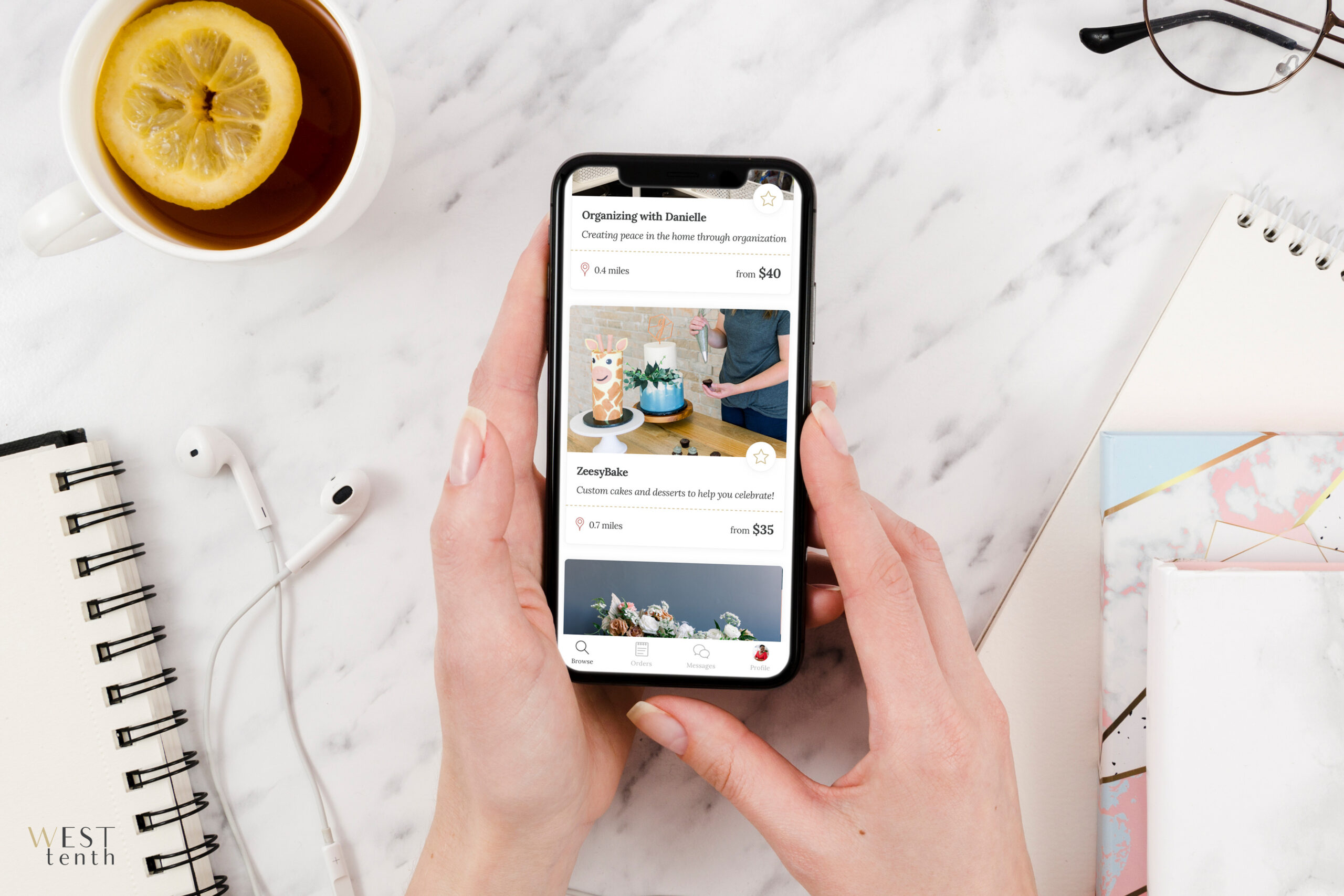West Tenth elevates women in business — on their own terms

Between February and November of 2020, nearly 2.2 million women left the American workforce — a trend that continues now. Not only are women heavily represented in the industries hardest hit by the coronavirus pandemic — hospitality, retail, education, and healthcare — but they’re also far more likely than men to leave the workforce because of responsibilities at home.
That’s because, as entrepreneur Lyn Johnson puts it, the pandemic took a situation that was barely sustainable for many women — balancing work, motherhood, and caregiving duties — and pushed it over the edge. For some, additional domestic responsibilities, like overseeing their children’s distance learning, forced women to make tough choices about leaving the workplace. For others, the choice to leave work was made for them, as layoffs and furloughs disproportionately affected women.
And this mass exodus has long-term implications. “Especially if women leave to care for family, the marketplace tends to discount that reason significantly,” Lyn says. “It becomes a very difficult decision to reverse. What we’ll see in the next 18 to 48 months is more and more women starting businesses from home, because that’s the one available alternative to them.”
West Tenth believes that home-based businesses may become the professional path forward for millions of women. Stand Together Ventures Lab (STVL3, LLC), part of the Stand Together community, is investing in the platform to help lower barriers to entrepreneurship for women.
Founded in 2019 by Lyn and Sara Sparhawk, West Tenth provides home-based businesses with a digital marketplace to connect with their local communities. West Tenth’s platform is home to all types of entrepreneurs, from artisan bakers to family photographers to personal organizers. These women were already cultivating their skills and offering their services to friends and family. West Tenth gives them a larger platform and educational resources to turn theses skills and passions into thriving businesses.
Even before the coronavirus pandemic came to the United States, Lyn and Sara had noticed a trend of women starting skill-based businesses from home. “The recognition of all the economic activity that’s happening in the home was really the galvanizing moment where we said, ‘people need to know about this’,” Lyn says. Before the pandemic, she says, 9 million women ran home-based businesses in the United States, and they expect that number has increased significantly over the last year and a half.
The result is a boom in creative small businesses. Since its launch, West Tenth has offered a digital home to everything from personalized gift-giving services to freeze-dried candy. Much of the platform’s success is because of its community focus. “There’s a conversation that happens,” Sara says. “When you reach out, you’re actually talking to the person who’s going to provide you the service or make you a custom good. People feel like they have a relationship with someone from their community; now they feel like they have a go-to florist or home baker.”
The platform also provides a way for women to outsource time-consuming, skill-based labor. “We want to help women alleviate their own burdens by outsourcing some of the home responsibilities that normally fall to them. If you can help a woman grow her business by paying her to do the things that she’s good at, then there’s just immense value unlocked there,” Lyn says.
West Tenth’s vision is bigger than helping women survive an economic downturn or closing the gender-based wage gap. Lyn and Sara see the wage gap as just part of a larger challenge: the wealth gap. While women earn an average of 82 cents per dollar earned by men, they own only an average of 32 cents per dollar in financial assets owned by men — and the deficit for women of color is even larger. To help close the gap, West Tenth also provides training and resources through a community and education arm called The Foundry. By helping entrepreneurs with the back-end of their businesses, West Tenth is equipping women to expand their fledging ventures into long-term wealth generation.
Right now, the platform is active in Southern California and Salt Lake City, with plans to expand to Phoenix next month. Later this year Lyn and Sara hope to move their platform into the Denver, Boise, and Northern California marketplaces, with dreams of going national in the next few years.
They’re even thinking globally. In many other countries, microbusinesses make up a larger part of the economy than in the United States. On a trip to Colombia, for example, Sara spoke to people who asked her to expand West Tenth there to support the many women who run home businesses.
“This is something that women from all around the world experience,” she says. “And they need a marketplace like this to help them.”

